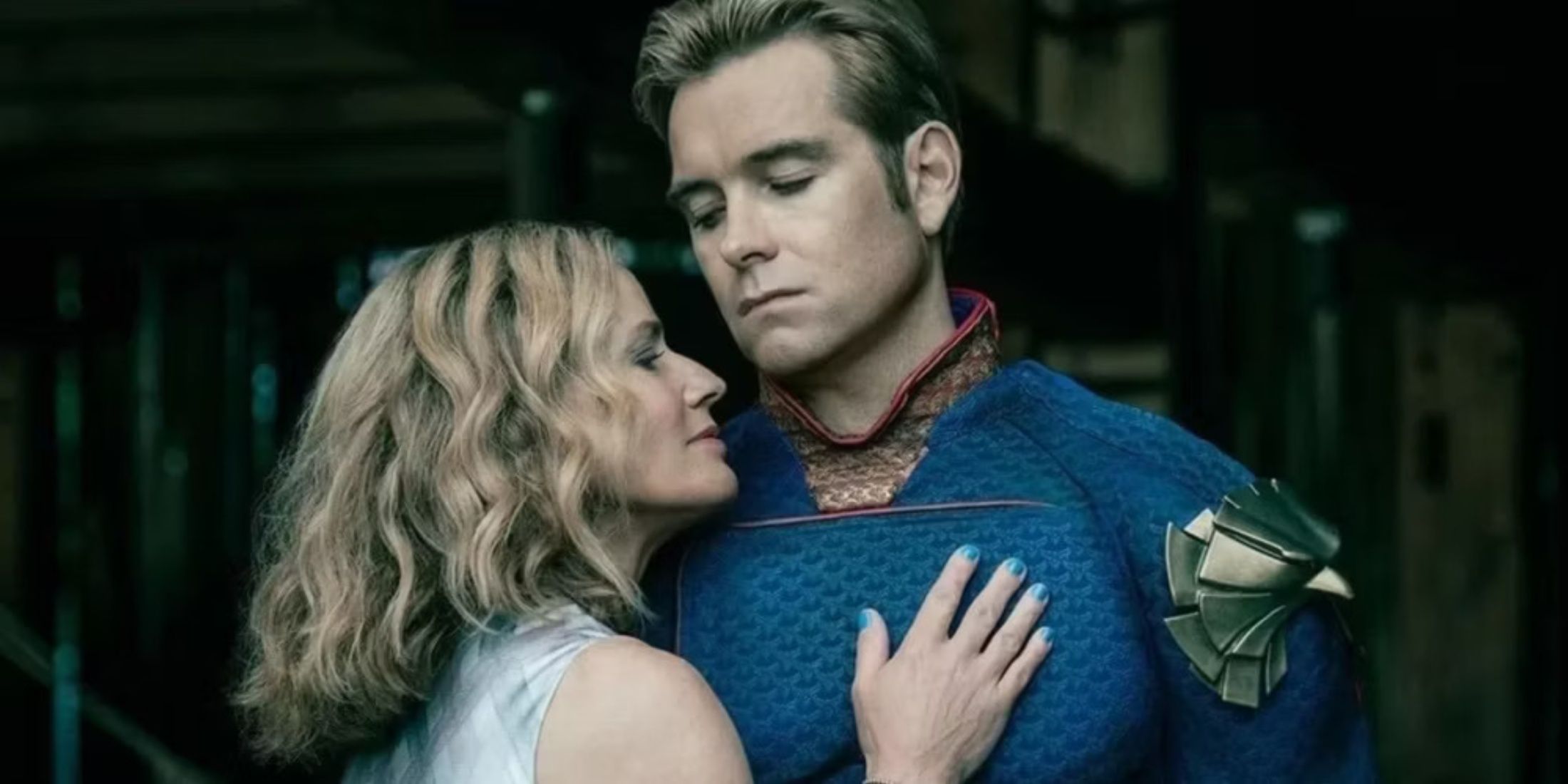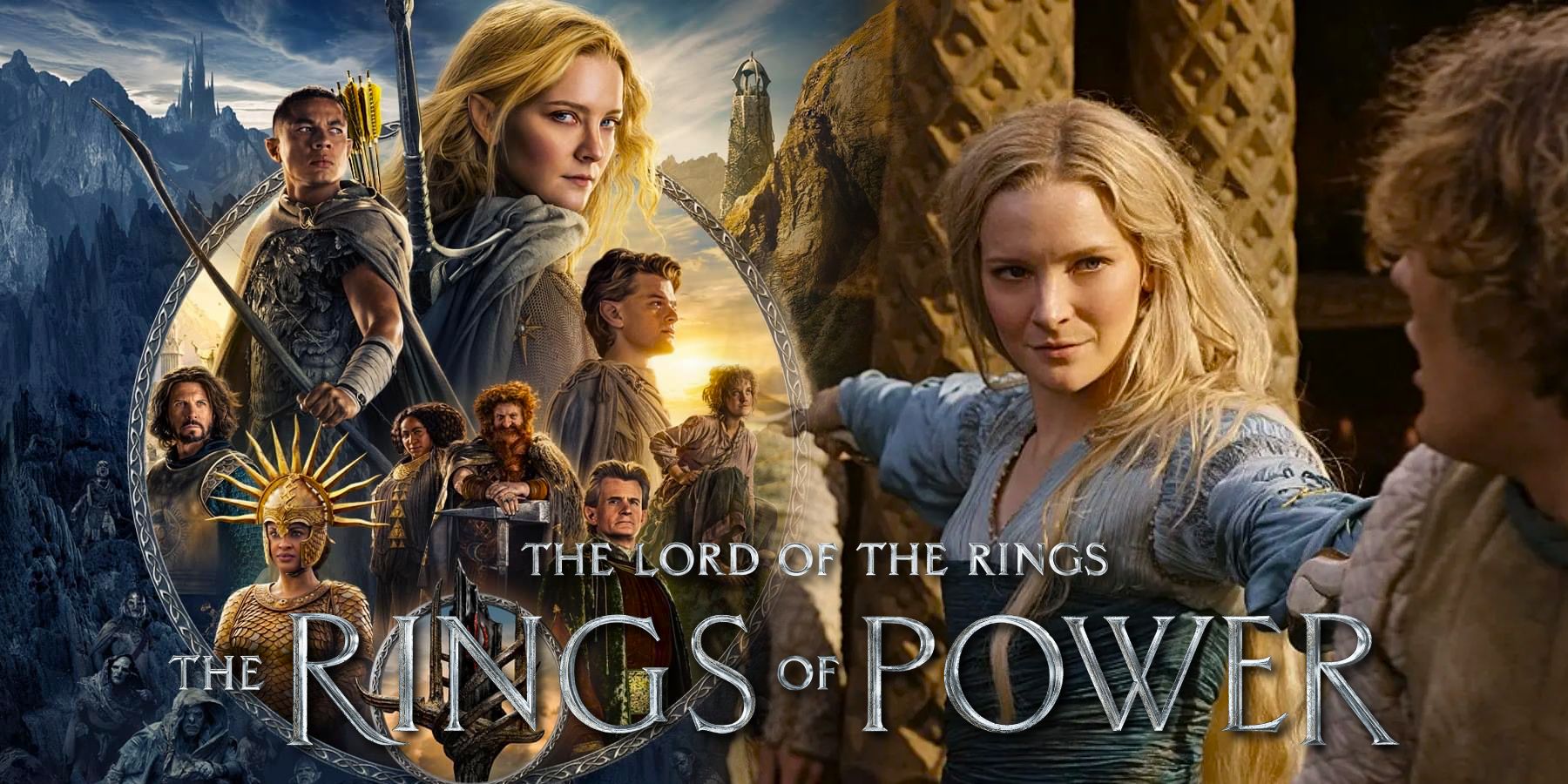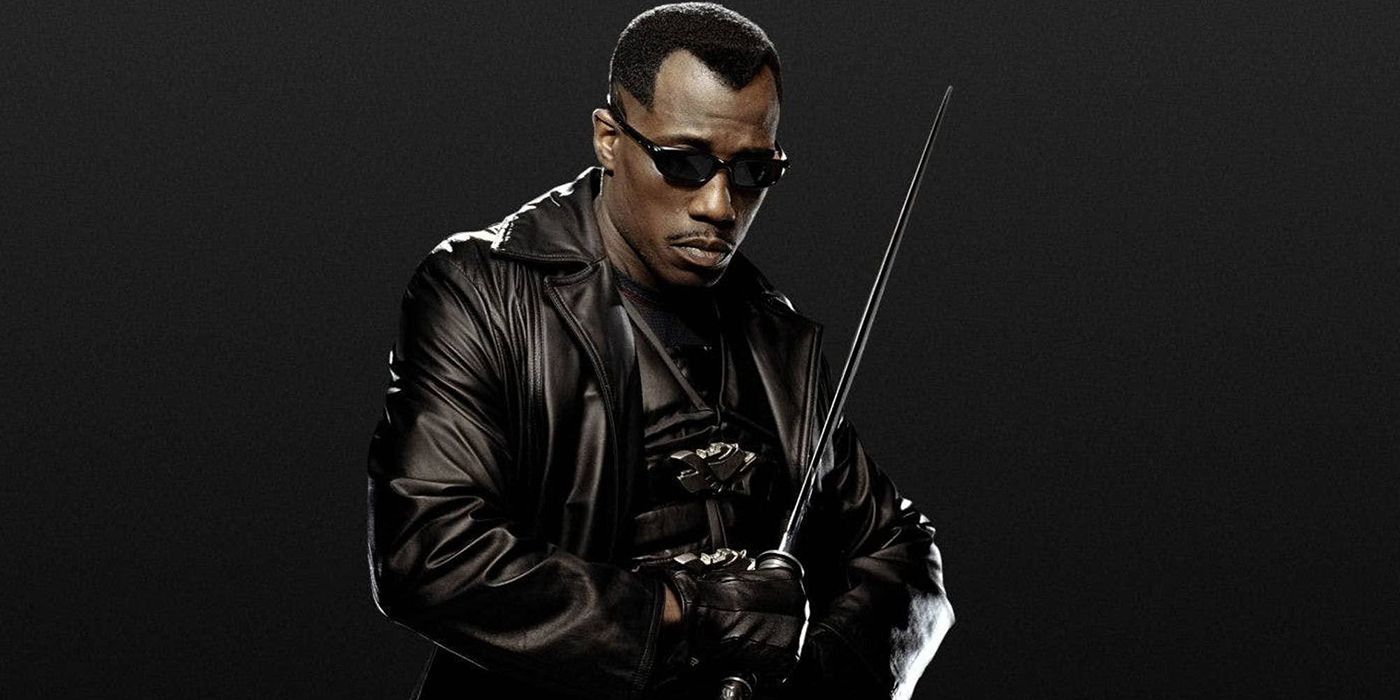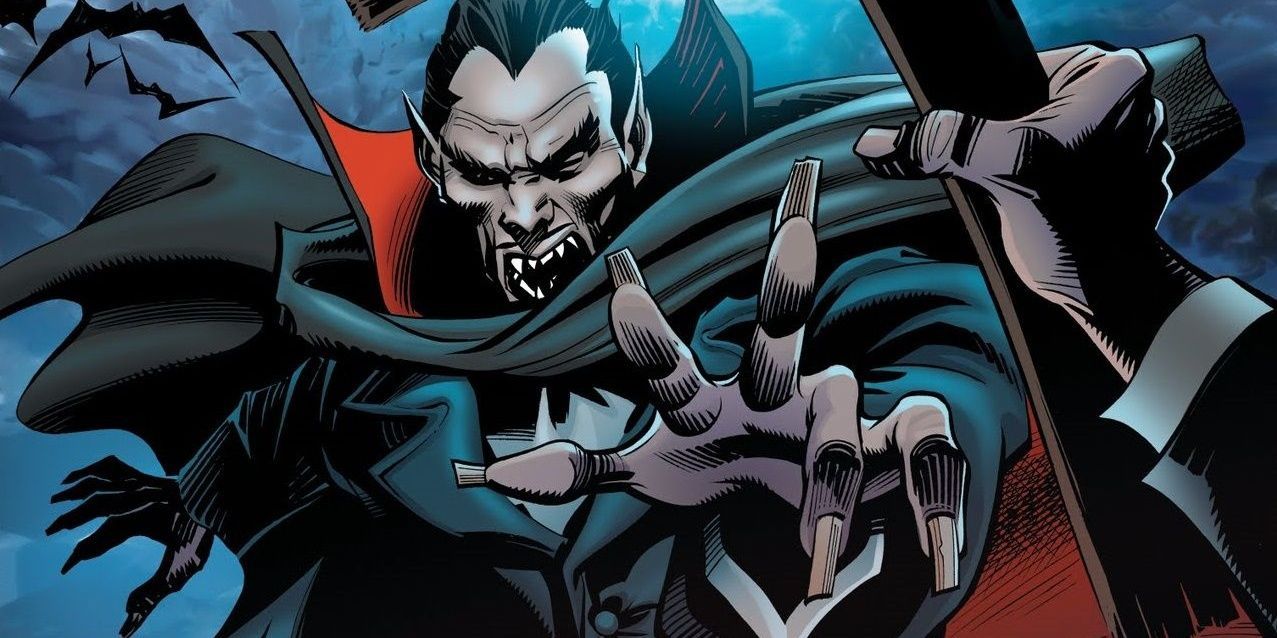Blade is set to enter the Marvel Cinematic Universe in a few years, his first big screen outing since 2004. The original Blade trilogy was controversial. The three films have wildly different perceptions, but they are all a little outdated in many major ways.
The movie landscape of the late '90s and early 2000s was radically different from that of today, especially in the field of superhero films. Blade was among the very first films inspired by Marvel Comics, made spectacularly with a hard R rating, over a decade before the official start of the MCU. In the modern age, superhero movies are everywhere, and their newfound ubiquity breeds a necessity to innovate between films.
Blade is a half-vampire who dedicates his life to hunting down vampires using an arsenal of weaponry and martial arts mastery. His rogues gallery are mostly vampires, demons, and monsters and his storylines often see him teaming up with other Marvel heroes to hunt down creatures of the night. Blade is not a terribly complex character, but he does not necessarily need to be. His motivations are simple, his actions are efficient and he leaves a very strong impression without needing to spend too much time establishing him. With a protagonist like Blade to hang a narrative on, filmmakers could put more focus into the other side of the conflict, by making engaging and socially relevant antagonists.
Vampires have been a mainstay of fiction for over a century, in that time they have filled almost every conceivable role a concept could fill. Among the most common themes of vampire fiction is wealth, from vampire horror to romance, the creatures of the night are almost always filthy rich. Vampires as metaphors for the rich draining and consuming the poor beneath them predates even Bram Stoker's Dracula. No less than Karl Marx in his seminal work Das Kapital compared global capital to vampirism. This trend is going on strong still today, when income inequality is a massive topic of conversation worldwide. Blade provides the MCU a chance to put in their answer to this classic metaphor.
Over the course of the MCU, the films have gradually taken on many socially conscious themes. The Iron Man films featured profit-focused businessmen like Obadiah Stane or Justin Hammer as villains. Spider Man: Homecoming gave fans the wealthy arms dealer the Vulture. Black Panther was, of course, the standout example, as its story focused on themes of imperialism and modern race relations. Some still criticize the heroes for the fact that so many among their ranks are either fabulously wealthy, descended from royalty, or funded by someone who is.
Detractors often point out that Marvel's evil billionaires are almost always defeated by good billionaires, a concept that might not ring true in the modern real world. In addition, some draw attention to the fact that rich folks like Tony Stark are almost always portrayed as the main victim of the supervillains plan, while little is said about the often poor and anonymous civilians caught in the crossfire. The combination of this element and the classic interpretation of vampires could set up for a new type of villain in the MCU.
The vampires of Marvel comics live in sects, which vary wildly in abilities, habits, and locations. The original trilogy of Blade films did not go too deeply in detail regarding the vampire society, a decision which a modern Blade film could reverse. A shadowy society of vampires that exists underneath modern humanity is not the most original concept, but perhaps some members could emerge as political figures or industrialists. Maybe some could have had involvement with some of the existing MCU powers, vampires would have to have existed for centuries, alongside all of the events of the universe thus far.
In Captain America: The Winter Soldier, an AI Arnim Zola declares that both in-universe events like Bucky's transformation and real-life catastrophes like the Cuban Missile Crisis were the work of HYDRA in disguise. This did wonders to demonstrate the power of HYDRA as an organization, while carefully establishing the Marvel timeline as an alternate history from our own. Perhaps vampire society could play a similar role with the release of Blade, by subtly implying vampire involvement in decisions that have hurt the poor and vulnerable over the past centuries. A deeply cutting satire could show the culpability of real-world politicians, demonstrating that even those not actively attacking the rights of the weakest among us are complicit by their silence.
The best-known adversary of Blade in the comics is also the best-known vampire in history, Vlad III Dracula. Dracula appears very regularly in Marvel comics, having been entered into the public domain in the late '60s. Dracula is depicted much as he is in most iterations of his character, a singularly massive force of evil who resides in a massive castle commanding vampires as their chosen king.
A woefully dated and largely unrecognizable take on Dracula, referred to as Drake, is the primary antagonist of the critically panned Blade: Trinity. A more evergreen updating of Dracula might eschew the early 2000's aesthetic in favor of a thematic update. Recasting the ruler of Wallachia as a modern-day autocrat or perhaps an immensely powerful international head of business could move the social aspects of the character to the forefront. Even without Dracula, casting vampires as wealthy plutocrats or corrupt politicians while demonstrating the harm done to poor or underprivileged communities could set the plot on a relatable and socially conscious course.
Attacking the issue of income inequality and abuse of the poor by the rich through a narrative about a vampire hunter ridding the world of the bloodsucking fiends would be an easy feat, while also grounding the fantastical plot in real-world issues. Vampires are a secretive class of powerful monsters who look just like us, but who feed off the weak and vulnerable to thrive, and that makes for an easy allegory. Blade does not have to make itself a political polemic, but in the modern age, almost everyone has a CEO or a head of state that they despise. Casting vampires as the class which uses and abuses others for personal gain, then introducing the hero who will go to any lengths to destroy them is a cant miss formula to make Blade a powerful story.






